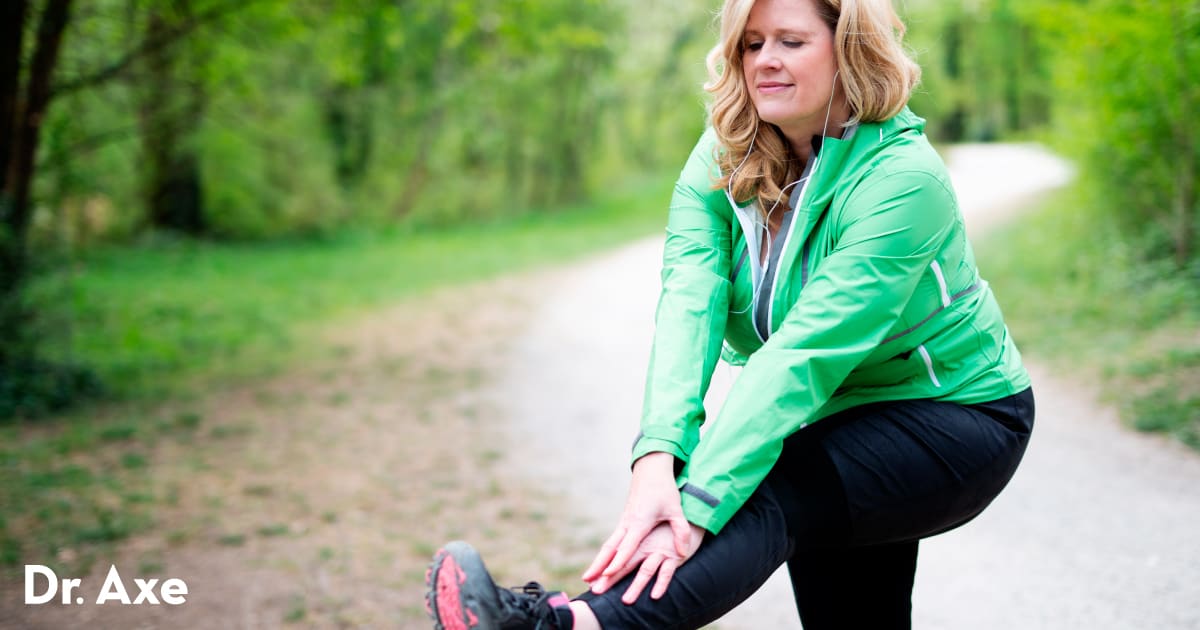
Evidence is growing that lifestyle has a direct impact on genes. The molecules surrounding our genes not only affect our physical traits but can also influence their expression. The environment in which we live may have an impact on our genes, according to a new study. The implications of this research are far-reaching. Here's an overview of how lifestyle influences our genes. What are the potential implications? Let's consider what these changes might mean for our health.
Scientists have found that certain gene variants can increase longevity. These gene variations are involved in basic cellular functions, such as repair of DNA and maintenance of chromosome ends. These genes include genes that influence the immune system, cardiovascular system, blood fat, and other cellular functions. The cardiovascular system plays an important part in longevity. It helps reduce the risk of many diseases, such as heart disease, and also lowers the chance of getting it wrong. These genes were not the only ones that were studied. Other researchers discovered that certain variants of gene had lower chances of developing certain cancers.

Researchers have found that lifestyle genetics can be closely linked to cardiovascular health. Researchers also discovered evidence that lifestyle choices can interact with genetic variants for CAD and other conditions. This is critical for our health. So it's important to know the history of your family. This is an important step towards improving your health. And it's FREE! Remember: The more information you have, the better. A medical professional should be consulted if you are worried about a particular illness.
Genetics and lifestyle can have a significant impact on your risk of developing certain conditions. These factors, when combined, can impact the risk of stroke, atrial fibrillation and coronary artery disease. These factors can be also linked to the risk for heart disease. These findings should guide lifestyle changes. You can decline to have this test performed if you are uncomfortable with the information. A multifactorial, comprehensive approach is key to achieving optimal health.
These findings are not meant to be taken as conclusive proof that genetics and lifestyle have a causal relationship. Genetics may play a large role, but studies have shown that lifestyle gene may explain some differences between men & women. The results of these studies are helpful for developing better lifestyle-genetics-related prevention strategies. It will help you determine if you or your family is at high risk for developing dementia. You should seek the advice of a doctor if your family is at risk.

Another way to identify your health risks is to take a genetic test. You can get a clear picture of your risk for some common conditions. You will also be tested for gene variations. Your genes could play a role in your overall health. Study by the authors revealed that lifestyle genetics is a great way for you to discover how your genes can affect your health. Your risk of dementia can be reduced by living a healthy lifestyle.
FAQ
What is the best way to train?
It all depends on what you're looking for. First, lift heavy weights if you are looking to increase muscle mass. Then move into cardio. You can then go to strength training if your goal is to lose weight.
You can burn fat by just doing cardio. After that, you can add strength training.
Do cardio first if you are looking to increase muscle mass. It stimulates growth hormones that help build muscle mass.
Also, eat before you workout. This will fuel you muscles better, which will make it work harder. This will make you feel better while working out.
What does milk do?
Next time you buy milk think about what you could do with it. It might also help if you start drinking less coffee.
Milk has been proven to be beneficial to both children and adults alike. Milk provides children with nutrients such as vitamin D, calcium, potassium, phosphorous, and magnesium.
It is also good for digestion and bone strength. People who consume dairy products have lower rates of illness and better immune systems.
Also, milk is rich in lactose so people who can't digest this sugar well can still reap the benefits of it without any stomach issues.
You can drink more milk than you would soda or juice. The extra calcium and vitamin D found in milk can help strengthen your teeth and bones.
Plain low-fat milk can be used to make yogurt if you don’t like the taste. Yogurt can be a great substitute for milk, as it has fewer calories and more protein.
Yogurt also includes probiotics. These help in digestion and improve immunity.
Warm milk can help you sleep better if you have trouble falling asleep. Warm milk helps relax muscles and boosts serotonin levels.
What's a good routine for a daily workout?
You must exercise regularly to stay fit. It doesn't matter which type of fitness you choose, as long as it is done regularly. Consistency is key. It is important to stay consistent in order to get results.
Begin by walking for a few minutes each day. You can gradually increase the amount of exercise you do until you have 30 minutes each day. You can do this running, swimming weight training, yoga or aerobics classes.
Try to get active every day. Don't skip any sessions unless you have a valid reason for not attending.
Wear appropriate clothing and footwear when exercising outdoors. It is important to take into account the weather conditions, and how they may affect your ability to exercise safely.
Make sure that you drink plenty of water while you're exercising. Avoid drinking alcohol during this time because it can cause dehydration. Caffeinated beverages such as tea, coffee, and cola should be avoided. These drinks may give you energy but also dehydrate your body.
You might feel tired when you start to exercise for the first time. If you stick with your training program, you'll feel more awake and alert.
How do I build muscle quickly?
It is important to eat healthy food and lift weights frequently in order to quickly build muscle.
It is best to exercise in the morning, when you feel fresh and ready to go!
It is a good idea to do exercises like push-ups (pushes), bench presses (squats), and so on.
You can try different weight training methods and remember to drink lots of water throughout the day.
What does butter do?
Butter is a great source of saturated fats. This type is beneficial for healthy skin and hair as well as stronger bones.
Vitamin K in butter also prevents bleeding from cuts, bruises and other injuries. Vitamin K works together with vitamin C to prevent bruising.
Butter is also rich with minerals, such as calcium and phosphorous. These elements promote stronger bones and teeth.
Butter has its drawbacks. Butter contains high amounts of cholesterol. There are studies that show excess cholesterol may increase the likelihood of developing cardiovascular diseases.
Butter is also high-fat, which can contribute to obesity and increase cholesterol.
Butter can be spread on bread, but you don't have to dip it into soups or salads if you absolutely must. Bread will absorb more oil than pasta or potatoes.
Statistics
- Cardmembers earn 5% Back at Amazon.com with a Prime Credit Card. (amazon.com)
- Get free shipping and 25% off today. (healthline.com)
- Are You One of the 20% of Guys (mh.co.za)
- The PRS enabled risk stratification for overall prostate cancer and lethal disease with a four-fold difference between men in the highest and lowest quartiles (HR, 4.32; 95% confidence interval [CI], 3.16-5.89). (pubmed.ncbi.nlm.nih.gov)
- 10 pounds in a month is likely during a lean bulking phase, especially for beginners. (muscleandstrength.com)
External Links
How To
How can a man get in shape in 30 days?
Breaking down fitness goals into manageable steps will help you reach your fitness goals.
You need to make sure you are working towards the goal each day. This could be anything from running 3km to doing 10 pushups in 5 minutes.
If you do this consistently over time, you will see positive results.
Be consistent is key. You must keep going until you succeed.
What is the difference in Aerobic Fitness and Anaerobic Fitness
Anaerobic fitness describes the body's ability not to use oxygen to perform intense physical tasks. During periods of high-intensity exercise, we use anaerobic pathways to provide enough energy to complete the task. Anaerobic pathways include glycolysis (creatine phosphate), the phosphagen and lactic acid.
Cardio fitness is, in contrast to aerobic fitness, the practice of sustaining low-intensity exercise. While performing aerobic exercises, oxygen is used as the primary source of fuel for the cells. In other words: The aerobic pathway gives more energy than that of the anaerobic.
You must build your aerobic capacity before you can run a marathon. You won't be successful if you focus only on your anaerobic ability.
Aerobic fitness also refers to cardiovascular fitness. The most common methods for assessing cardiovascular fitness include VO2 max testing or step tests.
VO2 Max Testing
VO2 max refers to the maximum amount of oxygen (O2) used by the body during exercise. This test measures how much oxygen the body can use while exercising.
This is one of the most accurate tests to measure cardiovascular fitness. The test is difficult to administer because it requires expensive equipment.
Step Tests
Step tests are a simple but effective way to measure cardiovascular fitness. You will be asked to walk, jog or run for a specific time on a track. This is based on your age or weight.
These tests are inexpensive, easy to conduct, and can be done almost anywhere. You can for instance walk on a treadmill 2 minutes, then stop for 1 minute. Throughout the session, your heart rate should be within a certain range.
This is the "Bruce Protocol". Bruce, a runner, developed this protocol after realizing that his heart rate did not rise when he ran longer distances.